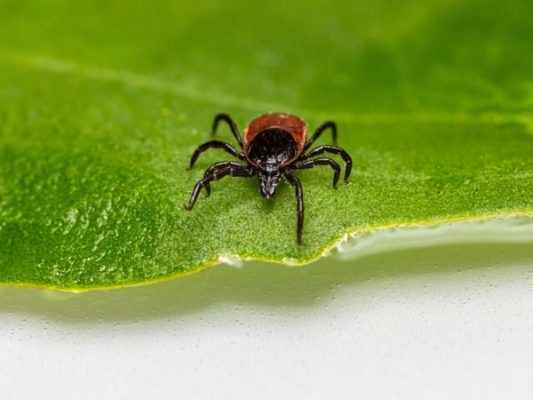How Does Lyme Disease Affect Your Hormones?
POSTED ON NOVEMBER 9, 2020 BY TORONTO FUNCTIONAL MEDICINE CENTRE

As we’ve discussed in our previous blog posts, Lyme disease can cause debilitating symptoms and affect multiple organs.
Due to its resilient nature, Borrelia burgdorferi, one of the main bacterial species that causes Lyme disease, may be difficult to eliminate from the body; this could result in a long-term persistent Lyme infection.
What is less emphasized though is Lyme’s effect on the endocrine (hormonal) system. It makes sense to question this because Lyme can infiltrate almost any area of the body.
Although people link Lyme with other organs, affected endocrine glands may also impact a patient’s well-being. Below is a brief guide to Lyme disease’s impacts on the endocrine system.
Quick Notes
- Chronic inflammation caused by Lyme disease may interfere with your hormone balance, resulting in abnormal hormone levels.
- Lyme disease (with an affected hepatic (liver) system) may cause difficulties in metabolizing hormones, which may result in hormonal dysfunction.
- Magnesium is an essential mineral that’s needed for balancing our hormones. Unfortunately, Lyme disease decreases the magnesium levels in our bodies.
Lyme Disease and the Thyroid Gland
Research suggests that Lyme disease can affect the thyroid gland, leading to thyroid dysfunction, specifically Hashimoto’s thyroiditis. Hashimoto’s thyroiditis is a type of hypothyroidism in which the immune system begins to attack the thyroid gland.
Research shows that Borrelia may trigger Hashimoto’s through a process called molecular mimicry. In the case of Lyme disease, molecular mimicry occurs when the body’s immune system not only attacks Borrelia, but also the thyroid tissue that looks similar to Borrelia. Essentially, the immune system cannot distinguish between the pathogen and the healthy tissue, finally attacking both. The result is the development of hypothyroidism, further affecting the functions of the human body as a newly formed, independent syndrome. Symptoms and signs may therefore overlap, making it tough to diagnose.
Lyme Disease and the Adrenal Gland
During a persistent Lyme Infection, patients often experience chronic inflammation. The human body perceives chronic inflammatory states as stressors, leading to adrenal insufficiency (adrenal fatigue) from hormonal depletion.
Unfortunately, adrenal fatigue and Lyme may share common symptoms. An individual who suffers from both conditions might experience chronic pain due to persistent inflammation and lack of the adrenal gland’s anti-inflammatory properties. Adrenal fatigue in patients with Lyme disease is only a symptom induced by the effects of Borrelia burgdorferi on the adrenal glands.
Lyme Disease and the Reproductive Glands
The hormonal disruption from Lyme disease may affect reproductive glands, too. Testosterone, an essential hormone for both men and women, may decrease due to Lyme disease; this may cause low libido or low sex drive.
Women with Lyme disease may experience high or low levels of estrogen, which may trigger hot flashes, mood swings, brain fog, irritability, insomnia or anxiety.
In perimenopausal, menopausal, and post-menopausal women, an adrenal hormone called DHEA provides the body with about 50 percent of testosterone compared with 10 percent in men. Therefore, menopausal women with Lyme disease may have further difficulties in dealing with hormonal side effects.
Hormone Replacement Therapy and Lyme Disease
Hormone Replacement Therapy (HRT) may increase the quality of life of patients with Lyme disease. Supplementing with hormones such as progesterone, pregnenolone, and DHEA may help individuals treat bothersome symptoms and focus on their primary battle, which is Lyme disease.
Note: Individuals with adrenal fatigue or thyroid issues may notice improvement with adrenal and thyroid support nutraceuticals, adrenal hormones or thyroid hormones; these therapies support or replace the function of the gland. However, stopping such supports abruptly may result in a crash for the patient. This is why we recommend seeking the help of a healthcare practitioner who has experience treating patients with Lyme disease and hormone imbalances.
Seeking Support for Your Lyme Symptoms and Hormones
Do you think Lyme disease is affecting your hormones? If you’re interested in having your Lyme symptoms and hormones assessed, please visit a healthcare practitioner today. Currently, we are accepting new patients at Toronto Functional Medicine Centre. To know more about our clinic’s program for integrative Lyme disease treatment , click here to book your appointment.
References:
Benvenga S, Santarpia L, Trimarchi F, Guarneri F. Human thyroid autoantigens and proteins of Yersinia and Borrelia share amino acid sequence homology that includes binding motifs to HLA-DR molecules and T-cell receptor. Thyroid. 2006;16(3):225-236. doi:10.1089/thy.2006.16.225
Van Den Eede, Filip & Luyten, Patrick. (2009). Does hypothalamic-pituitary-adrenal axis hypofunction in chronic fatigue syndrome reflect a ‘crash’ in the stress system?. Medical hypotheses. 72. 701-5. 10.1016/j.mehy.2008.11.044.
Cristea, Victor & Crişan, Monica. (2004). Lyme disease with magnesium deficiency. Magnesium research : official organ of the International Society for the Development of Research on Magnesium. 16. 287-9.
Maarij Baig, Lin Zheng, Alka Farmer, “Severe Hyperbilirubinemia: A Rare Complication of Lyme Disease”, Case Reports in Gastrointestinal Medicine, vol. 2019, Article ID 2762389, 3 pages, 2019. https://doi.org/10.1155/2019/2762389
Ramesh G, Didier PJ, England JD, et al. Inflammation in the pathogenesis of lyme neuroborreliosis. Am J Pathol. 2015;185(5):1344-1360. doi:10.1016/j.ajpath.2015.01.024
Anderson, Wayne; Gitlin, Robert. 2014 Lyme, Neurotoxins, and Hormonal Factors: an interview with Nancy Faass, MSW, MPH. The Free Library (July, 1), (accessed September 19 2020)
John E. Morley, H. Mitchell Perry, III, Androgens and Women at the Menopause and Beyond, The Journals of Gerontology: Series A, Volume 58, Issue 5, May 2003, Pages M409–M416, https://doi.org/10.1093/gerona/58.5.M409
RECENT BLOG POSTS
How Does Lyme Disease Affect Your Hormones?
As we’ve discussed in our previous blog posts, Lyme disease can cause debilitating symptoms and[…]
Nov
7 Herbs That May Help Treat Lyme Disease
Although doxycycline, a wide known antibiotic, is prescribed to treat Lyme disease, research shows that[…]
Oct
Feed Your Body to Help Fight Lyme Disease: An Integrative Functional Medicine Approach
LYME DISEASE TREATMENT Feed Your Body to Help Fight Lyme Disease: An Integrative Functional Medicine[…]
Sep




